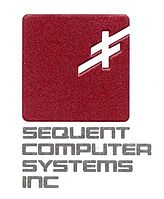I sometimes wonder if folks think I prefer poorly-tuned SQL. After all, I like hardware and everyone knows how effective it is to throw hardware at a poor query plan.
I think everyone in the world has already blogged it but I can’t resist the me-too excitement. On June 10 my fellow Oak Table Network members Jonathan Lewis and Kyle Hailey are offering a unique SQL tuning presentation. Read about it here:
But, honestly, does anyone really believe there is enough hardware in existence to throw at some of the more gruesome, poorly-tuned SQL I’ve seen? No. Bad SQL (plans) can cost hundreds of thousands percent increase in cost. No matter how fast your hardware is it certainly can’t mitigate potentially tens of millions more physical I/O than is really necessary. These guys know how to help you identify and fix such crippling SQL problems. But so does SQL Tuning Advisor.
What Does This Have To Do With Exadata?
So, no, not even highly-optimized solutions like Exadata and the Sun Oracle Database Machine are able to obviate SQL tuning. The Database Machine includes all the power of Oracle Database 11g and as we pointed out in the Winter Corporation paper covering early Exadata performance we routinely rely on SQL Tuning Advisor.
No, there is no such thing as sufficiently powerful hardware to handle SQL problems. Let’s see what we can learn in the Lewis v. Hailey webcast.


dang…I thought Exadata was the equivalent of FAST = TRUE!
Oh well.
I still think it pushes the envelope out even further though for most of the bad SQL.
I will continue to fight for good code when I can but Exadata certainly masks much of it (and I realize not all of it).
Sorry Chet, I can’t agree with you on that…but then, what do I know
What? You mean we still have to design and build applications sensibly?
Man, you are no help to me *at all*.
😉
Hi Doug,
Uh, heh-heh.
See you at OOW this year?
Indeed and MOTS if you can make it there, but I guess you’re going to be busy in the run-up to OOW …
You don’t think that Exadata will “mask” bad SQL?
By mask of course I mean not bubble to the top as quickly as it might on a “regular” database. Or did I miss your point here?
I don’t believe Exadata is a panacea by any means, but I believe it will delay the need to get into the high end performance tuning on many applications.
>”regular” database
Exadata is irregular (not ordinary) storage underpinning a regular database. No, I don’t “think” Exadata will “mask” bad SQL. Exadata is not a time machine. If you make it do more work than necessary it will take longer. If “longer” happens to meet one’s service level needs we aren’t likely talking about bad SQL but instead, academically impure SQL or some such esoteric topic…
Point taken on the “regular” database thing. I believe I heard Ron Weiss mention that about 20 times at the Exadata SIG (the 11gR2 software is exactly the same as I am running locally) at COLLABORATE.
I guess what I was trying to say is that Exadata’s “longer” is shorter than most (all?) systems.
chet
>I guess what I was trying to say is that Exadata’s “longer” is shorter than most (all?) systems.
…generally speaking, yes.
@Chet
I think another thing to consider is whether your ‘bad’ SQL is I/O or CPU intensive. If you have a lot of concurrent users that aren’t using parallelism and read a little bit of data and then iterate over it continuously because of badly written SQL, I’m not convinced that even Exadata is going to help you that much.
In fact, I have good reason to believe it won’t.
I think my credentials as an Exadata fan are pretty solid, but it doesn’t mean it’s going to save people from stupidity!
Cheers
@doug
I don’t doubt it. I guess I was speaking in a very general sense (probably not the best place for that sweeping generality on a highly technical blog).
That’s also beyond my means at this time (determining CPU/I/O intensive operations), not to mention on Exadata.
Maybe, maybe, a better way to say it is that there are real people out there that have sub-optimal systems that should be re-engineered. For whatever reason, the business decides that they don’t have time to do that so they purchase something like Exadata to push out that re-design/performance tuning/best practices to some unknown date. This one I know to be true. 🙂
Chet,
That seems to be a common thread today:
http://hekatonkheires.blogspot.com/2010/06/thought-on-exadata.html
P.S., Now there is proof-positive that I link to blogs that don’t link to mine 🙂
@Chet
I agree with you that there are shops looking to Exadata to be their silver bullet (and extend their poorly designed apps and databases lives). The reality of the situation is that using the kill-it-with-hardware mentality is truly a gamble — it may work or it may not. There is one thing that is certainly true though: poorly designed apps waste hardware resources directly proportionally to their availability. So buy more, waste more, and maybe get a little more (performance).
Exadata has a large “fan club”… however, adding perceptively pragmatic practitioners to the ranks would be quite welcome! I’ll postpone further pontification.
lol…that’s funny. Christian and I were discussing (IM) the topic (in relation to this post).
I think we (Christian and I) both agree it’s not the best situation. The ideal would be to fix the system (which is my preference).
Have I made any sense yet? 😉
Hi Chet,
Shucks, you don’t have to make any sense on my blog 🙂
Joking aside, I get it.
Is it possible to deploy Exadata Storage Servers without the Oracle Database Machine — i.e. connect the storage to our own Linux servers ? Infiniband would be a requirement.
The second part of the answer to the second question at http://www.oracle.com/us/products/database/sun-oracle-database-machine-faq-069053.pdf implies that this is so.
If so, what information is available on the requirements and whether successful deployments have been made ?
Hemant
Hello Hemant,
I know what is possible. I don’t know what they are willing to let you buy though. Give sales a call. They’ll be glad to let you know.
Thanks. Dan Norris responded on my forums thread at http://forums.oracle.com/forums/thread.jspa?forumID=829&threadID=1098662
Hemant K Chitale